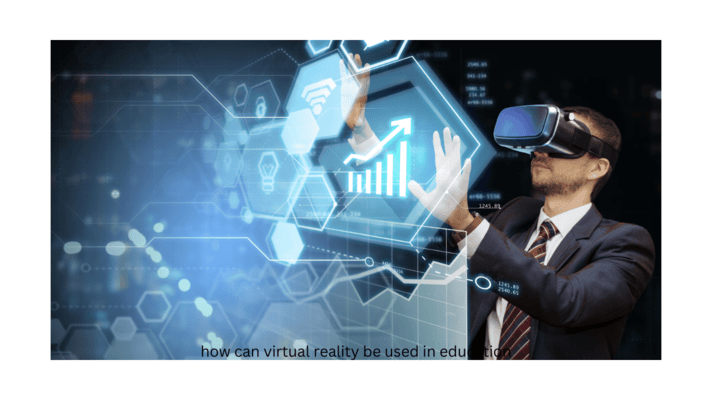Virtual Reality (VR) isn’t fair a technology in the long, how can virtual reality be used in education, run it’s quickly becoming an indispensable portion of modern instruction? With its immersive capabilities, VR offers a heap of openings to upgrade learning encounters, making instruction more locked in, available, and effective.
Presentation to Virtual Reality (VR)
What is Virtual Reality?
Virtual Reality (VR) could be a reenacted involvement that can be comparative to or totally distinctive from the genuine world. It drenches clients in a computerized environment where they can connect with objects and indeed perform activities.
Brief History of VR Innovation
VR innovation has been in improvement for decades, with early models dating back to the 1960s. In any case, it’s as it were in later a long time ago that VR has become more available and reasonable, much obliged to headways in equipment and program.
The Integration of Virtual Reality in Instruction
Current Instructive Scene
Conventional instruction frequently depends on reading material, addresses, and other routine strategies, which may not continuously capture students’ consideration or cater to their personal needs.
Potential Benefits of VR in Instruction
The integration of VR in instruction offers various preferences, counting upgraded learning encounters, availability, and cost-effectiveness. How Can Virtual Reality be Used in Education?
Enhanced Learning Involvement
Immersive Environments for Better Understanding
VR creates immersive situations that permit understudies to imagine complex concepts in ways that conventional education strategies cannot reproduce.
Intuitively Reenactments for Hands-on Learning
With VR, understudies can lock in intuitive recreations, such as virtual labs or historical reconstructions, providing them with hands-on learning encounters.
Openness and Inclusivity
Overcoming Physical Confinements
VR can bridge topographical boundaries and instruct understudies who may be incapable of going to conventional schools due to physical confinements or incapacities. How Can Virtual Reality be Used in Education?
Catering to Differing Learning Styles
By advertising intuitively and multisensory encounters, VR caters to assorted learning styles, guaranteeing that all understudies can lock in with the fabric successfully.
Cost-effectiveness and Versatility or How Can Virtual Reality be Used in Education?
Long-term Venture vs. Conventional Assets
Whereas the starting costs of executing VR innovation may be high, it can eventually demonstrate to be a cost-effective arrangement compared to conventional instructive assets, such as course readings and field trips. How Can Virtual Reality be Used in Education?

Worldwide Reach and Dispersal of Information
VR has the potential to reach understudies in inaccessible zones or underprivileged communities, democratizing access to instruction and disseminating information on a worldwide scale.
Illustrations of VR Applications in Instruction
VR innovation is already being utilized in different instructive settings, counting virtual field trips, restorative preparing recreations, and dialect learning encounters.
Tending to Challenges and Concerns
In spite of its potential, the far-reaching selection of VR in instruction faces challenges such as innovative obstructions, moral contemplations, and potential downsides. How Can Virtual Reality be Used in Education?
Execution Techniques
To effectively coordinate VR into instruction, cautious arranging and thought are required, counting educational program plan, educator preparation, and continuous bolster.
Future Viewpoint and Patterns
As VR innovation proceeds to advance, its effect on instruction is anticipated to develop, driving imaginative education hones and unused openings for understudies.
Victory Stories and Case Ponders
Various educators have grasped VR innovation, driving positive results for both understudies and teachers. The case considerations and tributes highlight the benefits of VR in instruction.
Inquire about and Think about Supporting VR in Instruction
Scholastic inquired about giving experimental proof supporting the adequacy of VR in instruction, counting made strides in learning results, and expanded understudy engagement. How Can Virtual Reality be Used in Education?
Collaboration and Organizing Openings
Organizations between tech companies and instructive education, as well as proficient improvement communities, offer openings for collaboration and organizing in the field of VR instruction.
Government Activities and Financing
Government back for VR ventures in instruction, counting gifts and endowments, plays a vital part in driving development and extending to VR innovation.
Impact on Understudy Engagement and Inspiration
VR has appeared to extend understudy engagement and inspiration by giving immersive and intuitive learning encounters that capture students’ intrigue and interest. How Can Virtual Reality be Used in Education?
Conclusion
Virtual Reality is balanced to revolutionize instruction by advertising immersive learning encounters that upgrade understudy engagement, availability, and viability. With cautious arranging and speculation, VR has the potential to convert the way we educate and learn, making a more comprehensive and energetic instructive environment for all.
FAQs
Is VR innovation costly to execute in instructive settings?
Whereas there may be starting costs related to VR innovation, its long-term benefits frequently exceed the speculation, particularly when compared to conventional instructive assets.
Can VR cater to understudies with inabilities?
Yes, VR can overcome physical limitations and give available learning encounters for students with inabilities, guaranteeing inclusivity in instruction.
Are there any ethical considerations with respect to the utilization of VR in instruction?
Moral contemplations, such as information security and guaranteeing impartial get-to, must be tended to when actualizing VR in instruction to guarantee dependable utilization.
How can instructors incorporate VR into their lesson plans?
Instructors can coordinate VR into their lesson plans by leveraging existing VR instructive substance or making their immersive encounters custom-made to their educational programs.
What is the end of the viewpoint for VR in instruction?
The long run of VR in instruction looks promising, with continuous headways in innovation and expanding selection rates, clearing the way for inventive educating hones and moving forward learning results.

